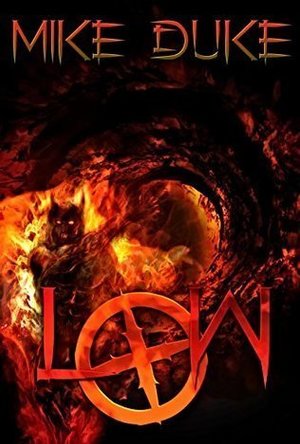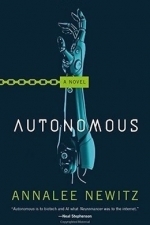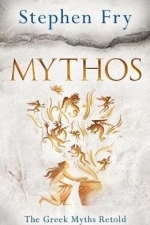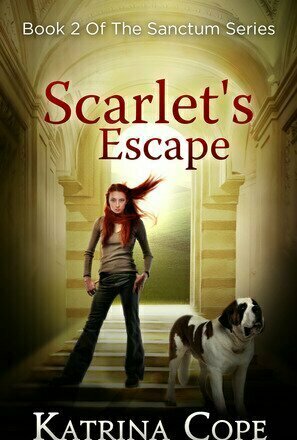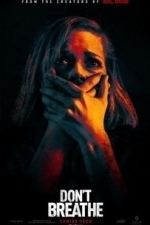Search
Search results
Acanthea Grimscythe (300 KP) rated LOW in Books
Jan 31, 2019
I received a copy of LOW by Mike Duke in the mail a few months back and I’ve finally finished reading it–my health has gotten in the way not just once, but twice. For the most part, I enjoyed reading the book, but I do have a single bone to pick with it. You’ll see that towards the end of my review.
The two main characters are Mark Adams and Chad Bigleby. While Adams is a bit flat, Chad Bigleby is dynamic. Officer Adams is a good guy, through and through and does what’s right. Chad, on the other hand, is a man with no moral conscience. He’s a cheater, an abuser, and all around, a piece of shit. Mr. Phailees and Phobos are real pieces of work, showing that Duke’s definitely got the ability to create some pretty crazy characters.
Plotwise, the book is steady. There’s always something going on, even in the lulls between major events. That said, you might wonder why it took me so long to read the book if I found it interesting, and in that regard, I admit that I’ve been in a bit of a slump when it comes to reading. On top of that, I’ve had some severe concentration issues as of late.
I loved the way Duke writes his monsters. Some of them have a Lovecraftian feel to them, which I really like. Others are horrifying in other ways, such as Charon and Mortis which are demon-like and massive in their appearance.
Earlier I said I have a bone to pick, and here it is: the women in this book are unbelievably unrealistic. It’s because of this that I cannot give LOW a five-star rating. None of them are strong or independent, and for the most part, they seem like puppets controlled by their men. I would have liked to see Samantha stand up to Chad, or Amy grow a backbone despite her mistakes. It’s actually quite appalling how meek and sexualized the female characters are in this book. Granted, one of the points of view is from a misogynistic asshole of a man.
LOW is a good book and definitely falls into the horror category. In its pages, Mike Duke’s command of language is strong and his words come together beautifully to create a horrifying scene. It makes the reader question their own morality and wonder whether or not their sins would be so grievous as to be judged by Mr. Phailees. I know one thing for sure: I wouldn’t want to be at the wrong end of his bite.
I’d like to thank the author for providing me with a copy of this book for free in exchange for an honest review.
The two main characters are Mark Adams and Chad Bigleby. While Adams is a bit flat, Chad Bigleby is dynamic. Officer Adams is a good guy, through and through and does what’s right. Chad, on the other hand, is a man with no moral conscience. He’s a cheater, an abuser, and all around, a piece of shit. Mr. Phailees and Phobos are real pieces of work, showing that Duke’s definitely got the ability to create some pretty crazy characters.
Plotwise, the book is steady. There’s always something going on, even in the lulls between major events. That said, you might wonder why it took me so long to read the book if I found it interesting, and in that regard, I admit that I’ve been in a bit of a slump when it comes to reading. On top of that, I’ve had some severe concentration issues as of late.
I loved the way Duke writes his monsters. Some of them have a Lovecraftian feel to them, which I really like. Others are horrifying in other ways, such as Charon and Mortis which are demon-like and massive in their appearance.
Earlier I said I have a bone to pick, and here it is: the women in this book are unbelievably unrealistic. It’s because of this that I cannot give LOW a five-star rating. None of them are strong or independent, and for the most part, they seem like puppets controlled by their men. I would have liked to see Samantha stand up to Chad, or Amy grow a backbone despite her mistakes. It’s actually quite appalling how meek and sexualized the female characters are in this book. Granted, one of the points of view is from a misogynistic asshole of a man.
LOW is a good book and definitely falls into the horror category. In its pages, Mike Duke’s command of language is strong and his words come together beautifully to create a horrifying scene. It makes the reader question their own morality and wonder whether or not their sins would be so grievous as to be judged by Mr. Phailees. I know one thing for sure: I wouldn’t want to be at the wrong end of his bite.
I’d like to thank the author for providing me with a copy of this book for free in exchange for an honest review.
Goddess in the Stacks (553 KP) rated Autonomous: A Novel in Books
Dec 22, 2018
Autonomous is an interesting story that poses a lot of moral questions. It doesn't really take sides; both the pharmaceutical pirate and the agents tracking her down are painted in sympathetic ways, as if we're meant to like them all. We see why Jack is a pharmaceutical pirate; medicine is only available to those rich enough to pay for it, so the poor stay poor and sick and short-lived. She wants to change that. She reverse-engineers drugs, manufactures them, and distributes them to the needy through her associates.
Meanwhile, Eliasz is a conflicted military agent who is sexually attracted to robots. Or at least to his partner, Paladin, though a flashback shows what might have been the start of his attraction to robots. Paladin is probably the single most interesting character in the entire book, as she muses on the nature of being indentured, and searches through her memories and the internet for information about her situation.
The book does have LGBT content - Jack is bisexual, and Eliasz is - robosexual? Is that a thing? Paladin could be called nonbinary or trans; she repeatedly mentions that gender isn't a thing to robots, but because she's a military robot, most people call her a he at the beginning of the book. She learns the brain inside her is female, and to make Eliasz more comfortable with his attraction, she decides to use female pronouns. Eliasz does use the F word to refer to himself being attracted to the robot at the beginning, when they were using male pronouns. This puzzles Paladin for a while, causing her to search the term and figure out what Eliasz meant by its use.
There's a lot of complex world-building in this book that is barely brushed past. From the corporations who own patents covering everything, to the system of indenture that covers humans as well as robots, to the bio-domes that cover cities (but it's livable outside the biodomes, so why are they needed?), to the new federations that cover continents that used to be divided into several countries - there's a LOT going on. And there's not just robots, but also some pretty advanced cybernetics implanted in humans as well as an everpresent network of data that can be tapped into with implants that everyone has.
Ultimately, for as complex as the world is, and cohesive as the plot is, I'm left wondering who, if anyone, was in the right in this story. I'm not sure if we're supposed to be happy with the ending or not. I've seen other reviews saying Neuromancer was a way better book in a similar vein, and I actually have copy of that waiting to be read. So we'll see.
You can find all my reviews at http://goddessinthestacks.com
Meanwhile, Eliasz is a conflicted military agent who is sexually attracted to robots. Or at least to his partner, Paladin, though a flashback shows what might have been the start of his attraction to robots. Paladin is probably the single most interesting character in the entire book, as she muses on the nature of being indentured, and searches through her memories and the internet for information about her situation.
The book does have LGBT content - Jack is bisexual, and Eliasz is - robosexual? Is that a thing? Paladin could be called nonbinary or trans; she repeatedly mentions that gender isn't a thing to robots, but because she's a military robot, most people call her a he at the beginning of the book. She learns the brain inside her is female, and to make Eliasz more comfortable with his attraction, she decides to use female pronouns. Eliasz does use the F word to refer to himself being attracted to the robot at the beginning, when they were using male pronouns. This puzzles Paladin for a while, causing her to search the term and figure out what Eliasz meant by its use.
There's a lot of complex world-building in this book that is barely brushed past. From the corporations who own patents covering everything, to the system of indenture that covers humans as well as robots, to the bio-domes that cover cities (but it's livable outside the biodomes, so why are they needed?), to the new federations that cover continents that used to be divided into several countries - there's a LOT going on. And there's not just robots, but also some pretty advanced cybernetics implanted in humans as well as an everpresent network of data that can be tapped into with implants that everyone has.
Ultimately, for as complex as the world is, and cohesive as the plot is, I'm left wondering who, if anyone, was in the right in this story. I'm not sure if we're supposed to be happy with the ending or not. I've seen other reviews saying Neuromancer was a way better book in a similar vein, and I actually have copy of that waiting to be read. So we'll see.
You can find all my reviews at http://goddessinthestacks.com
Accessible (2 more)
Simplified
Incredible insight into how much the modern world has taken from Greek and Roman culture
A lot of pretty complex names to remember (1 more)
Constant footnotes (usually at least one per page) to explain certain aspects, or highlight an interesting fact.
Mythos - The Greek legends retold
Ah, what a great read. Stephen Fry writes exactly how you would expect him to, if you've ever heard him speak. He understands the subject matter, and more importantly, realises how easily a reader will be overwhelmed by the sheer amount of players in these myths and answers that problem without condescension.
The book reads as a quasi-novel, from the birth of the universe to the third and fourth generations of immortals (this includes the creators, the titans, the gods, and mythical creatures/characters, spawns of titans and gods, gods and creatures, gods and men and all sorts.) and their adventures, each following on from the other.
I have always had an interest in the Greek myths and gods, and as I suggested above the really interesting part of these stories, beyond the very human nature of the immortals (jealousy, unreasonableness, duplicity, rage, deceit and pride) which makes for so much more of a believable creation theory, is the myriad ways they have influenced English language (any many others I'm sure). To give an example (I'm showing my own ignorance flagrantly here) a simple thing, the alphabet. It never occurred to me, in my own self centered existence, this simply come from the first and second letters of the Greek alphabet. Alpha and Beta. So simple, so obvious, yet I never made this connection.
The stories themselves are wonderful, and the best thing about them is they all tie in with a creation theory. Something, whatever it is, is learned, or created. Some paradigm is set, some moral conundrum is answered, or something in the world is explained by the end of every story told (the tides, the moon, wine, love, soul, war, sex, the seasons, humanity itself just to name a few). It's such an entertaining read, and I find myself telling anyone who will listen some of the revelations I find in this book page on page on page.
As an end note, don't be overwhelmed by the prospect of reading about these stories, this installment ONLY covers from creation, to the establishment of the twelve Greek gods, and their children. It stops before the even greater amount of legends stemming from human demigods (Hercules, Perseus etc) and these are picked up in Fry's most recent offering, Heroes (which I am yet to read).
If you have any interest in the Greek mythology, or etymology, or even history as a whole, this is absolutely one for you.
- Rob
The book reads as a quasi-novel, from the birth of the universe to the third and fourth generations of immortals (this includes the creators, the titans, the gods, and mythical creatures/characters, spawns of titans and gods, gods and creatures, gods and men and all sorts.) and their adventures, each following on from the other.
I have always had an interest in the Greek myths and gods, and as I suggested above the really interesting part of these stories, beyond the very human nature of the immortals (jealousy, unreasonableness, duplicity, rage, deceit and pride) which makes for so much more of a believable creation theory, is the myriad ways they have influenced English language (any many others I'm sure). To give an example (I'm showing my own ignorance flagrantly here) a simple thing, the alphabet. It never occurred to me, in my own self centered existence, this simply come from the first and second letters of the Greek alphabet. Alpha and Beta. So simple, so obvious, yet I never made this connection.
The stories themselves are wonderful, and the best thing about them is they all tie in with a creation theory. Something, whatever it is, is learned, or created. Some paradigm is set, some moral conundrum is answered, or something in the world is explained by the end of every story told (the tides, the moon, wine, love, soul, war, sex, the seasons, humanity itself just to name a few). It's such an entertaining read, and I find myself telling anyone who will listen some of the revelations I find in this book page on page on page.
As an end note, don't be overwhelmed by the prospect of reading about these stories, this installment ONLY covers from creation, to the establishment of the twelve Greek gods, and their children. It stops before the even greater amount of legends stemming from human demigods (Hercules, Perseus etc) and these are picked up in Fry's most recent offering, Heroes (which I am yet to read).
If you have any interest in the Greek mythology, or etymology, or even history as a whole, this is absolutely one for you.
- Rob
Phil Leader (619 KP) rated Scarlet's Escape (The Sanctum Series #2) in Books
Nov 25, 2019
I really enjoyed reading Jayden and the Mysterious Mountain, the first book in the Sanctum series (see review posted here) so was very much looking forward to reading the sequel. This task was made much harder by my 9 year old son demanding to read it first, then him re-reading Jayden and then Scarlet's Escape again.
When I finally got hold of the book I was not disappointed. It was only when I started to read this that I realised exactly what these books are - they are techno thrillers for younger readers. Tom Clancy for pre teens if you will. You do need to suspend belief - but no more than in any other techno thriller.
After the excitement of the last book, things have settled down in the Sanctum with Jayden and his friends Eva, Robert and Aaron forming a formidable infiltration and hacking team, using 'surrogates' and virtual reality to thwart terrorist activity. However the Santum's super computer Scarlet is behaving a little oddly, and missions have started going badly wrong. Are these linked and what can the friends do?
Meanwhile in Ernest College, Liam and friends stumble upon a secret (with a lot of help from their friend Brendan, who is in reality a surrogate controlled by Aaron in the Sanctum). What does it mean and which side is the College on?
The writing in the second book is tauter and crisper, helped by not having to explain every detail of the Sanctum, and also that although Jayden is still the primary narrative focus his friends get to do more than just follow his lead. Swapping between the Sanctum and the college, progressing each story a little from the very start also keeps the tension high as one or other group is always facing some sort of dilemma or decision. Cope has also been freed from the constraint of making this a stand alone book - there are plenty of loose ends to tie up at the end promising more great adventures to come. There are also plenty of red herrings and false trails to keep the reader guessing about who - or what - is responsible.
As in the first book there are plenty of positive role models and life lessons for the young reader. The episode with the chillies is an absolute hoot but there are serious issues dealt with too - bullying and guilt from a failed mission in particular.
Very much a recommended book for those still a little too young for 'young adult' fiction but who have grown out of books such as the Famous Five but still have a taste for adventure with a technological twist and a strong moral center. Overall another excellent book from Katrina Cope, very much looking forward to the next one (as is my son)
When I finally got hold of the book I was not disappointed. It was only when I started to read this that I realised exactly what these books are - they are techno thrillers for younger readers. Tom Clancy for pre teens if you will. You do need to suspend belief - but no more than in any other techno thriller.
After the excitement of the last book, things have settled down in the Sanctum with Jayden and his friends Eva, Robert and Aaron forming a formidable infiltration and hacking team, using 'surrogates' and virtual reality to thwart terrorist activity. However the Santum's super computer Scarlet is behaving a little oddly, and missions have started going badly wrong. Are these linked and what can the friends do?
Meanwhile in Ernest College, Liam and friends stumble upon a secret (with a lot of help from their friend Brendan, who is in reality a surrogate controlled by Aaron in the Sanctum). What does it mean and which side is the College on?
The writing in the second book is tauter and crisper, helped by not having to explain every detail of the Sanctum, and also that although Jayden is still the primary narrative focus his friends get to do more than just follow his lead. Swapping between the Sanctum and the college, progressing each story a little from the very start also keeps the tension high as one or other group is always facing some sort of dilemma or decision. Cope has also been freed from the constraint of making this a stand alone book - there are plenty of loose ends to tie up at the end promising more great adventures to come. There are also plenty of red herrings and false trails to keep the reader guessing about who - or what - is responsible.
As in the first book there are plenty of positive role models and life lessons for the young reader. The episode with the chillies is an absolute hoot but there are serious issues dealt with too - bullying and guilt from a failed mission in particular.
Very much a recommended book for those still a little too young for 'young adult' fiction but who have grown out of books such as the Famous Five but still have a taste for adventure with a technological twist and a strong moral center. Overall another excellent book from Katrina Cope, very much looking forward to the next one (as is my son)
Sophia (Bookwyrming Thoughts) (530 KP) rated A Different Kind in Books
Jan 23, 2020
A Different Kind follows Payton Carlson, a high school who has a perfect life as a cheerleader and on top of the social pyramid at her school, at least until she starts getting strange dreams that are actually her being abducted by aliens.
A Different Kind definitely isn't my favorite book, contrary to the stellar rating. It reminded me a lot about Lux, which I actually have a like/hate relationship:
~ Aliens. Obviously. On the bright side, the name isn't complex, although Lux certainly isn't complex. But Latin is most certainly complex. Here, they're just called Greys. Simple. Easy.
~ DOD, aka Department of Defense, or maybe some sort of government interference. The DOD checks up on fellow Luxens in Lux. It's pretty much a similar case here, although it's simply someone. Chances are it's the DOD. That's up to Lauryn to confirm.
~ Telepathy. Need I say more? O_O I did find "We mean you no harm" funny though... it's probably made me think of the weird voice going "We come in peace."
<img border="0" src="http://3.bp.blogspot.com/-C7DVLiXJ_jg/U3FdCxE4PMI/AAAAAAAADQI/JNNizFBzwVw/s1600/we_come_in_peace.jpg"; height="240" width="320">
<b>What Made Me Enjoy A Different Kind?</b>
~ Logan's humble. At least, that's what it seems to me. He certainly doesn't need an ego check AT ALL. I don't think he even has an ego. I'm not saying all book boys with an ego need a check. Some I just don't like. Some I don't like in the first but I like them by the second, and if I don't like said boy by the second book, he's toasty. No pun intended.
~ Telekinesis over metal, which I find majorly cool. Blacksmiths would be uber happy if this were an actual power. Oh, and there would be less hospital bills. ;)
~ Despite the fact I disliked Payton in the first half of the book, I actually liked her by the end. She makes a major character change from being a complete jerk to someone who realized that she didn't want to be popular after all and for her entire life, she's been acting like someone that everyone expected her to be. I did have a problem with her being drunk a lot though. But that was before her change. I suppose that means strong character development. :3
MORAL: Be Yourself
<img border="0" src="http://3.bp.blogspot.com/-inMi1-dfOq4/U3FdRYX9AwI/AAAAAAAADQQ/6xhvm2InqUo/s1600/be-yourself-Favim.com-368618.gif"; height="179" width="320">
------------------
Review copy provided by the author
Original Rating: 4.5
This review and more can be found over at <a href="http://bookwyrming-thoughts.blogspot.com/2014/06/review-a-different-kind-by-lauryn-april.html">Bookwyrming Thoughts</a>
<a href="http://bookwyrming-thoughts.blogspot.com/"><img src="http://4.bp.blogspot.com/-Gi5Rk5yLloA/UtliaUbdL3I/AAAAAAAACbE/J27z92_qrYU/s1600/Official+Banner.png"; /></a>
A Different Kind definitely isn't my favorite book, contrary to the stellar rating. It reminded me a lot about Lux, which I actually have a like/hate relationship:
~ Aliens. Obviously. On the bright side, the name isn't complex, although Lux certainly isn't complex. But Latin is most certainly complex. Here, they're just called Greys. Simple. Easy.
~ DOD, aka Department of Defense, or maybe some sort of government interference. The DOD checks up on fellow Luxens in Lux. It's pretty much a similar case here, although it's simply someone. Chances are it's the DOD. That's up to Lauryn to confirm.
~ Telepathy. Need I say more? O_O I did find "We mean you no harm" funny though... it's probably made me think of the weird voice going "We come in peace."
<img border="0" src="http://3.bp.blogspot.com/-C7DVLiXJ_jg/U3FdCxE4PMI/AAAAAAAADQI/JNNizFBzwVw/s1600/we_come_in_peace.jpg"; height="240" width="320">
<b>What Made Me Enjoy A Different Kind?</b>
~ Logan's humble. At least, that's what it seems to me. He certainly doesn't need an ego check AT ALL. I don't think he even has an ego. I'm not saying all book boys with an ego need a check. Some I just don't like. Some I don't like in the first but I like them by the second, and if I don't like said boy by the second book, he's toasty. No pun intended.
~ Telekinesis over metal, which I find majorly cool. Blacksmiths would be uber happy if this were an actual power. Oh, and there would be less hospital bills. ;)
~ Despite the fact I disliked Payton in the first half of the book, I actually liked her by the end. She makes a major character change from being a complete jerk to someone who realized that she didn't want to be popular after all and for her entire life, she's been acting like someone that everyone expected her to be. I did have a problem with her being drunk a lot though. But that was before her change. I suppose that means strong character development. :3
MORAL: Be Yourself
<img border="0" src="http://3.bp.blogspot.com/-inMi1-dfOq4/U3FdRYX9AwI/AAAAAAAADQQ/6xhvm2InqUo/s1600/be-yourself-Favim.com-368618.gif"; height="179" width="320">
------------------
Review copy provided by the author
Original Rating: 4.5
This review and more can be found over at <a href="http://bookwyrming-thoughts.blogspot.com/2014/06/review-a-different-kind-by-lauryn-april.html">Bookwyrming Thoughts</a>
<a href="http://bookwyrming-thoughts.blogspot.com/"><img src="http://4.bp.blogspot.com/-Gi5Rk5yLloA/UtliaUbdL3I/AAAAAAAACbE/J27z92_qrYU/s1600/Official+Banner.png"; /></a>
LeftSideCut (3776 KP) rated Don't Breathe (2016) in Movies
Feb 22, 2020 (Updated Feb 22, 2020)
For the most part, Don't Breathe is a really tight gem of a thriller with some decent horror elements throughout.
The movie revolves around three thieves - Rocky (Jane Levy), Alex (Dylan Minnette) and Money (Daniel Zovatto) trying to steal themselves enough valuables to be able to move away from their home city of Detroit.
When they hear about a sizable stash of cash hidden in the house of a blind war veteran (Stephen Lang), they get to work on what they assume will be an easy score. Things go rapidly downhill as it becomes apparent that The Blind Man isn't as helpless as they thought, and they become Tangled in a game of cat and mouse as they try to escape with their lives.
Don't Breathe is an incredibly tense film. It's dimly lit set pieces and it's frequently silent atmosphere are hugely effective. Director Fede Alvarez provides continuously great shots throughout (there's an extended sequence around the mid point which takes place in total darkness which is a particular highlight) and utilizes the small set (95% of the film takes place in The Blind Man's house) fantastically.
The cast are pretty good as well. The three thieves are both likable and dislikable at the appropriate moments, and serve their purpose well. Jane Levy is the stand out of the three, playing the role of 'the final girl' with a satisfying mixture of being terrified, vulnerable, and a strong survivalist all at once.
Stephen Lang is the MVP here though. He steals the show as The Blind Man, and manages to portray a genuinely batshit-scary movie monster, well at the same time, being a tragic and sympathetic characters.
This is one of the main strengths if the whole movie actually. Both The Blind Man and the set of thieves are portrayed as characters we should be siding with at one point or another, and then it will flip it over and give us the reverse one point later. The moral compass of who is to root for is in constant flux, and lends the narrative a unique edge.
My main criticism here though is the films final third. After being a stupidly tense thriller and a fight for survival for an hour, Don't Breathe gets a little silly towards it's climax, and downright gratuitous in parts, (the turkey baster to the face ffs!?).
There's not a huge amount of gore in display, so it doesn't quite fall into torture-porn territory, but the vibe is quite similar, and it tarnishes what is otherwise a pretty decent horror.
Overall though, Don't Breathe is worth a watch if you have any passing interest at all in thrillers or horror. With the news of a sequel in the way, I'm excited to see where the story will go.
The movie revolves around three thieves - Rocky (Jane Levy), Alex (Dylan Minnette) and Money (Daniel Zovatto) trying to steal themselves enough valuables to be able to move away from their home city of Detroit.
When they hear about a sizable stash of cash hidden in the house of a blind war veteran (Stephen Lang), they get to work on what they assume will be an easy score. Things go rapidly downhill as it becomes apparent that The Blind Man isn't as helpless as they thought, and they become Tangled in a game of cat and mouse as they try to escape with their lives.
Don't Breathe is an incredibly tense film. It's dimly lit set pieces and it's frequently silent atmosphere are hugely effective. Director Fede Alvarez provides continuously great shots throughout (there's an extended sequence around the mid point which takes place in total darkness which is a particular highlight) and utilizes the small set (95% of the film takes place in The Blind Man's house) fantastically.
The cast are pretty good as well. The three thieves are both likable and dislikable at the appropriate moments, and serve their purpose well. Jane Levy is the stand out of the three, playing the role of 'the final girl' with a satisfying mixture of being terrified, vulnerable, and a strong survivalist all at once.
Stephen Lang is the MVP here though. He steals the show as The Blind Man, and manages to portray a genuinely batshit-scary movie monster, well at the same time, being a tragic and sympathetic characters.
This is one of the main strengths if the whole movie actually. Both The Blind Man and the set of thieves are portrayed as characters we should be siding with at one point or another, and then it will flip it over and give us the reverse one point later. The moral compass of who is to root for is in constant flux, and lends the narrative a unique edge.
My main criticism here though is the films final third. After being a stupidly tense thriller and a fight for survival for an hour, Don't Breathe gets a little silly towards it's climax, and downright gratuitous in parts, (the turkey baster to the face ffs!?).
There's not a huge amount of gore in display, so it doesn't quite fall into torture-porn territory, but the vibe is quite similar, and it tarnishes what is otherwise a pretty decent horror.
Overall though, Don't Breathe is worth a watch if you have any passing interest at all in thrillers or horror. With the news of a sequel in the way, I'm excited to see where the story will go.
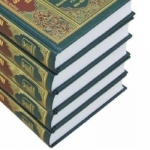
Set of 4 Hadith Books ( Sahih Al Bukhari & Muslim Authentic Book Of Islam ) ( Ramadan Islamic Apps )
Book and Reference
App
Al-Khawarizmi is a trusted name in Islamic Apps development for years. We have sold thousands of...

Kung Fu Panda Holiday Storybook
Book and Entertainment
App
★ Featured in "What's Hot" in the Apple App Store iStoryTime brings you Kung Fu Panda Holiday...
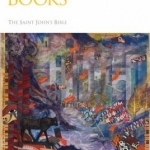
Historical Books
Book
Historical Books is the sixth of seven full color reproduction books from The Saint John's Bible. Of...
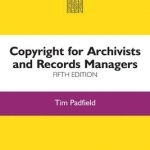
Copyright for Archivists and Records Managers
Book
As an archivist or records manager it is essential to keep up to date with the complexities of...
